
U.S. Army veteran and Purple Heart recipient, José Barco. (Photo provided by José Barco family)
While the nation celebrated its former service members on Nov. 11, Army veteran José Barco faced a different fate. On Veterans Day, the Purple Heart recipient was transported to an immigration detention center in Florence, Arizona — his last stop before being deported from the country he swore to defend.
Kevin O'Connor Jr, Barco’s lawyer, told CALÓ News that three days later, Immigration and Customs Enforcement (ICE) confirmed that he had been sent to Nogales, Sonora, Mexico, ending his fight to remain in the U.S., a country he has called home since childhood.
Hours after Barco’s family was notified of his deportation, Arizona veterans and immigrant rights advocates gathered outside the ICE field office in midtown Phoenix on Friday morning to protest the government’s removal of a war hero — a decision that advocates called a “national disgrace.”
According to Fernando X. Burgos, an ICE spokesperson, Barco was issued a final order of removal on Feb. 12, 2025, by an immigration judge and deported more than nine months later.
“When one veteran is deported, every single veteran is dishonored,” said Ricardo Reyes, a former U.S. Marine and executive director of the progressive veterans advocacy organization VetsForward. “When a nation abandons its warriors, it undermines the very values we swore to defend.”
As heightened immigration enforcement activity makes its way into Phoenix and Tucson areas, these groups are stepping up to support immigrants.
Advocates say Barco’s case is one example of broader systemic issues that non-citizens face in the U.S. immigration system — from a lack of due process to inhumane detention conditions. But his deportation case, which has caught national attention, was further complicated by battlefield trauma, an administration error and a criminal conviction.
Late Monday, the family released a statement saying that Barco was in Mexico and safe.
"José's safety, including his physical and mental well-being, remains our highest priority. We are grateful to the Trusted Organizations and Migrant Service Providers - each bound by confidentiality agreements - who are helping ensure he has access to the safest and most stable options available to him," Anna Stout said in the statement on the family's behalf.

Ricardo Reyes, former Marine and executive director of the progressive veterans advocacy organization VetsForward, denounces Jose Barco’s deportation during a press conference outside the ICE field office in midtown Phoenix, Arizona, on Friday, Nov. 14, 2025. (Nicole Macías Garibay/CALÓ News)
She said that for now, any next steps would be taken by Barco alone with advice from his legal team. O'Connor Jr. told CALÓ News that, while his office was assessing all potential resolutions, he would not comment further on his case.
‘He paid his debt to society’
Born in Venezuela to Cuban dissidents, Barco was four years old when he traveled with his family to the U.S., where they were granted political asylum after his dad was incarcerated for opposing the Cuban regime, per NPR reporting.
Barco grew up in Miami as a lawful permanent resident. At 17, he voluntarily enlisted in the Army and was deployed to Iraq in the summer of 2004 with a unit from Fort Carson, a military base in Colorado Springs.
On Veterans Day of 2004, Barco was on patrol with his unit when a vehicle loaded with explosives swerved unexpectedly and burst into flames, killing one soldier and wounding seven others.

U.S. Army veteran and Purple Heart recipient, José Barco. (Photo provided by José Barco family)
One of the bombs hit Barco’s Humvee, and he was thrown out of the burning vehicle. In that moment, he faced a choice.
“He could have run to safety,” Reyes said during the press conference. “ He was away from the burning car, but instead, he looked back. He saw that there were two soldiers pinned under this burning Humvee, and he ran back. José was on fire as he lifted this truck off of his fellow soldiers and dragged them to safety.”
The U.S. recognized his heroism with a Purple Heart, a military award that recognizes the sacrifice, honor and courage of servicemembers who have been wounded or killed in battle.
According to NPR reporting, Barco’s hands and thigh caught flames in the explosion. While he received immediate treatment for those injuries, an invisible wound went unnoticed: his head trauma. Barco said it was only after he began hearing ringing in his ears — months after the explosion — when military doctors diagnosed him with a traumatic brain injury (TBI).
A second tour in Iraq worsened his nightmares and insomnia, symptoms of his TBI that were not appropriately treated, advocates say.
Back in civilian life, Barco didn’t escape the violence and trauma from the war.
Upon his return to Colorado Springs, according to a PBS article, Barco was convicted of two counts of attempted first-degree murder and menacing in October 2009.
“We believe that it is a combination of the PTSD that he suffered, of the TBI that he suffered, of the depression that pushed him more and more into alcohol abuse — into trying to self medicate,” Reyes said. “Those are the things that led up to that day where he made a mistake. And he admits that he made a mistake.”
The patterns of violence Fort Carson soldiers exhibited after combat sparked an investigation and even a documentary was produced by Frontline, examining how mental health issues, drug abuse and multiple war deployments contributed to a rise in crime among these former service members.
Barco was sentenced to 52 years in prison. He was released after serving 15 years for good behavior.

Arizona State Rep. Cesar Aguilar denounces Jose Barco’s deportation during a press conference outside the ICE field office in midtown Phoenix, Arizona, on Friday, Nov. 14, 2025. (Nicole Macías Garibay/CALÓ News)
On Jan. 21, he walked out of prison in Colorado, where he expected to reunite with his wife Tia Barco and their teenage daughter. His release should have marked the end of a long punishment, advocates say. Instead, that day, as ICE agents waited to take him from prison to deport him, a new one began.
“I understand that he made a mistake, but he paid his debt to society. So what we are asking is that he just be allowed to go back to his family and rebuild his life,” said Reyes.
Barco’s release — which came the day after President Donald Trump was inaugurated — coincided with the administration’s sweeping crackdown on immigration enforcement. Their highest priority is to deport immigrants convicted of crimes. To identify them, the administration is relying on information provided by local law enforcement agencies. In California, the Department of Homeland Security requested the names of noncitizen prisoners, their convictions and their expected release dates from county sheriff's departments.
A man with no country
Barco served in the Army under a “Soldier to Citizen” contract, according to the website supporting his release. The program allows military members to enlist in the army with the promise of being granted U.S. citizenship after at least one year of service.
According to NPR, a memo from his commanding officer, Lt. Col. Michael Hutchinson, confirmed that Barco completed and submitted a citizenship application in the summer of 2006, documents that were lost by the U.S. Citizenship and Immigration Services, Reyes said.
This time, Barco faced a different battle — one with the U.S. immigration system.
In a court where judges “weaponized his mistake against him, but silenced his sacrifice,” Reyes said, Barco challenged his removal through five appeals, among them an asylum application. All were denied.
“The fact that he saved American lives on the battlefield was not mentioned once at any of his detention hearings. A man who bled. A man who literally burned alive for this country was never allowed to speak about the very service that we claim as America to honor,” Reyes said.

Former Arizona Sen. Raquel Terán denounces Jose Barco’s deportation during a press conference outside the ICE field office in midtown Phoenix, Arizona, on Friday, Nov. 14, 2025. (Nicole Macías Garibay/CALÓ News)
Before being deported to Mexico, Barco spent months at multiple immigration detention facilities in Colorado and Texas, where he faced such “brutality” that he decided to accept his removal.
“The cruelty has broken him. The conditions are so unbearable that he feels he has no choice left,” Reyes said. “That's not a decision of a free man. That's the decision of someone being crushed by a cruel system designed to force people out of this country.”
Immigration authorities tried to deport him once already — putting him on a plane to Venezuela, but officials refused to accept him. They questioned Barco’s nationality, saying his documents were forged and that he had a Cuban accent.
With Trump’s revocation of a Biden-era policy that shielded non-citizen veterans from deportation if they were eligible for naturalization, unless ICE identified “significant aggravating factors", advocates feared Barco’s fate could happen to the other veterans.
“Deported veterans should not even be in a sentence. That should not even exist when you serve this country,” Arizona Rep. Cesar Aguilar (LD-26) said.
Lawmakers are seeking ways to provide legal protections for veterans facing the immigration system.
U.S. Sen. Ruben Gallego, member of the Senate Veterans Affairs committee and a former Marine, announced that he is supporting a package of bills that aims to prevent the deportation of non-violent immigrant veterans, offer a citizenship pathway through military service and guarantee access to VA healthcare benefits.
“We're asking people to give all of their heart, to give their bodies for our country, and this is how we pay back. That is not who we are as a country, and we are here to fight back,” former Arizona Sen. Raquel Terán said. “And we are asking that this case be revised. We are asking that Sgt. Barco comes back home.”
Nicole Macias Garibay is a transborder storyteller and bilingual journalist from the U.S.-Mexico border. Her upbringing crossing the border on the daily fuels her drive to report on migration, Latino culture and the Hispanic community. She wrote for La Voz-The Arizona Republic, interned at Telemundo Arizona and launched VOCES, a bilingual magazine dedicated to telling stories para la comunidad, por la comunidad.

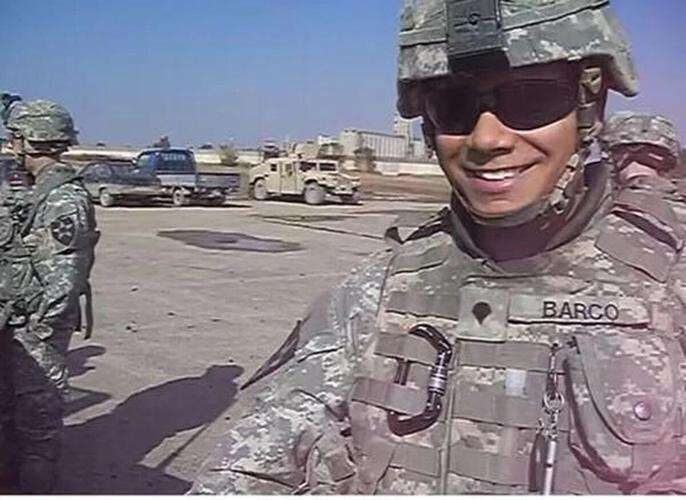
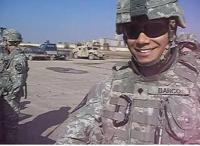
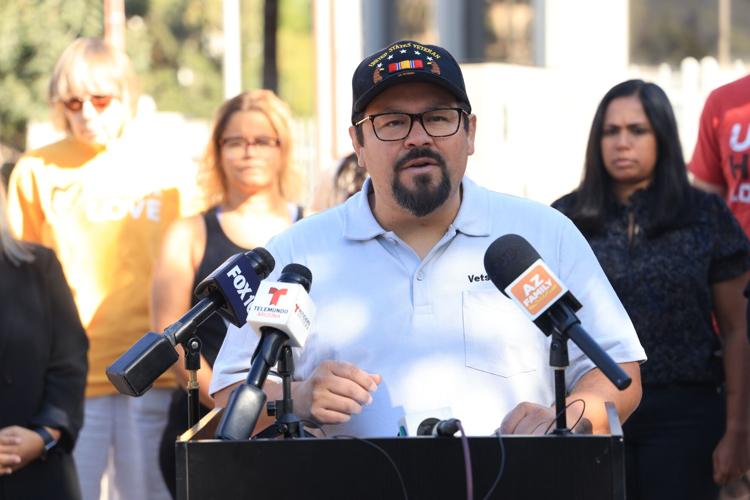
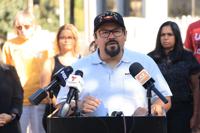
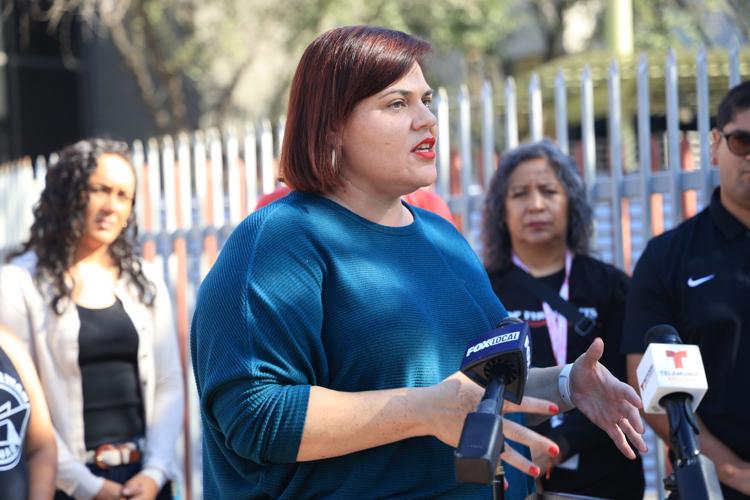
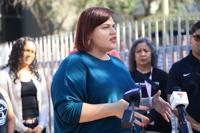
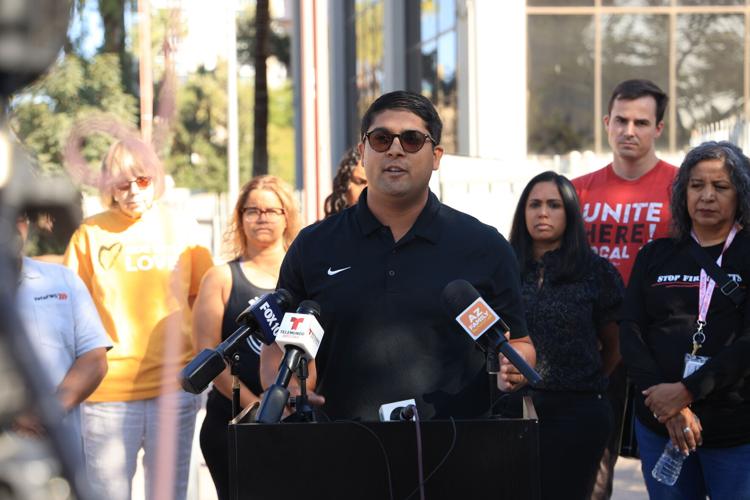
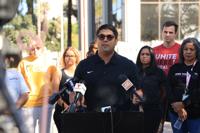
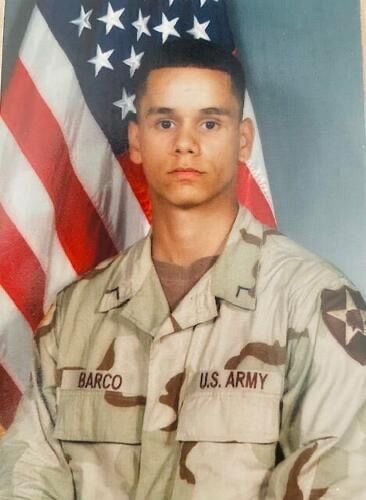
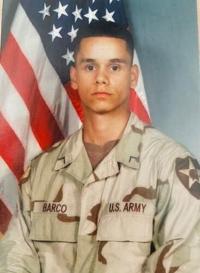

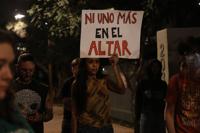

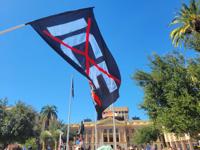

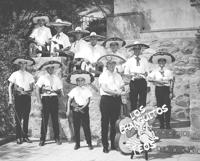




(0) comments
Welcome to the discussion.
Log In
Keep it Clean. Please avoid obscene, vulgar, lewd, racist or sexually-oriented language.
PLEASE TURN OFF YOUR CAPS LOCK.
Don't Threaten. Threats of harming another person will not be tolerated.
Be Truthful. Don't knowingly lie about anyone or anything.
Be Nice. No racism, sexism or any sort of -ism that is degrading to another person.
Be Proactive. Use the 'Report' link on each comment to let us know of abusive posts.
Share with Us. We'd love to hear eyewitness accounts, the history behind an article.